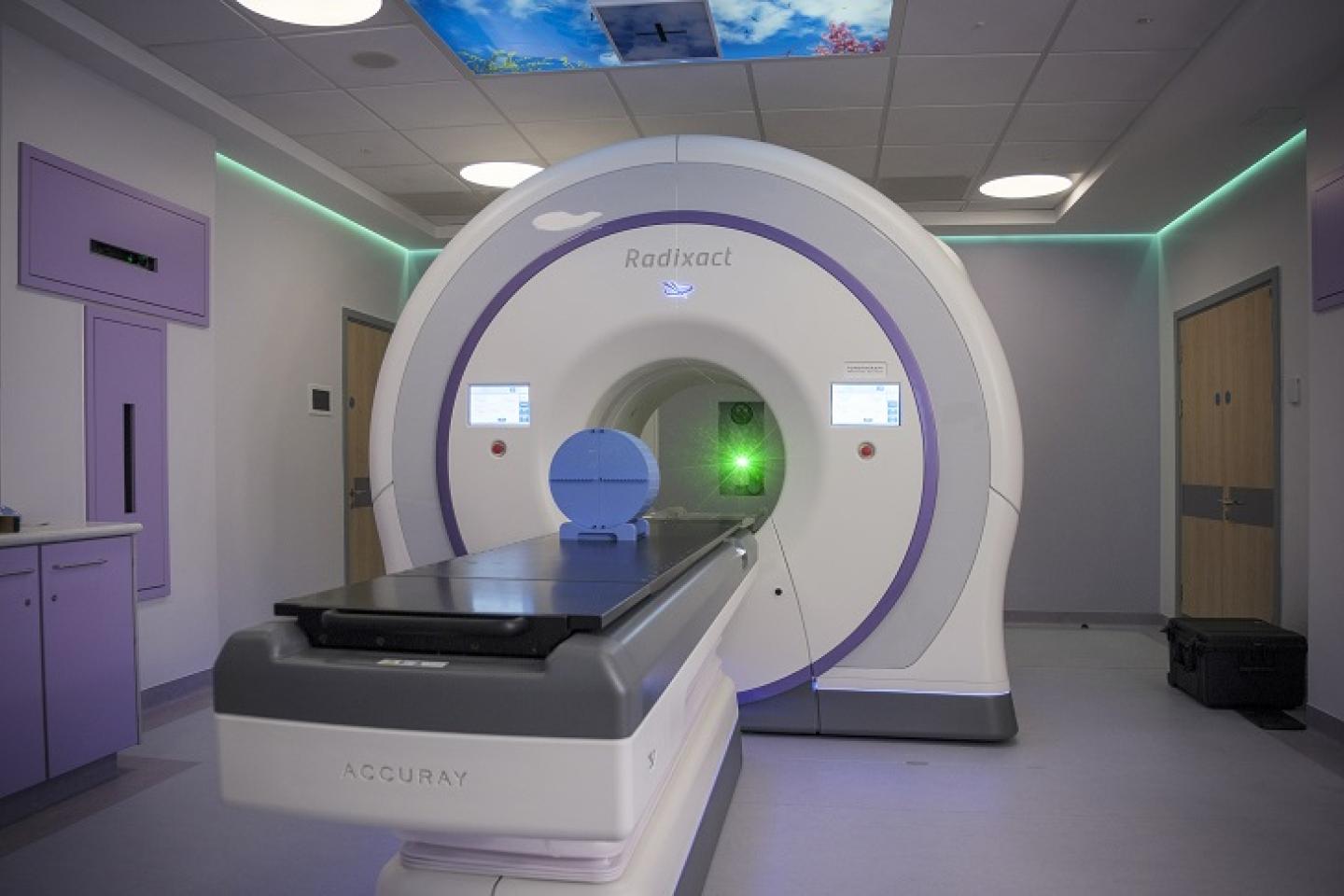Correction: A previous version of this article stated the Royal Marsden NHS Foundation Trust was the first in the world to use online adaptive radiotherapy. The article has been updated to reflect that it is the first to use RaySearch Laboratories' online adaptive radiotherapy offering.

The Royal Marsden Hospital in London has integrated a new way of planning radiotherapy treatment using online adaptive radiotherapy.
RaySearch Laboratories’ advanced radiotherapy planning system uses online adaptive radiotherapy (oART) to adjust a patient’s treatment plan on the same day, while the patient is still on the treatment bed, based on changes in the patient’s anatomy.
Funded by the Royal Marsden Cancer charity the hospital, part of the Royal Marsden NHS Foundation Trust, will now be able to use the AI-enhanced automated adaptive replanning feature with the hospital’s Accuray Radixact linear accelerator (linac) alongside its existing oncology information system.
More precise, targeted treatment
Previously, patients would follow a fixed treatment plan for radiotherapy based on a planning CT scan. However, significant changes in patient anatomy over the course of treatment can require a new plan.
Now, oART accounts for changes in the patient’s anatomy down to weight fluctuations and bladder filling.
Being able to account for these subtle differences allows from more precise, targeted treatment, which minimises damage to healthy tissue and reduces side effects.
A donation by the Lady Garden Foundation to the Royal Marsden Cancer Charity has also kickstarted research to improve treatment delivery and ensure oART meets the specific needs of gynaecological cancer patients, paving the way for national training and wider adoption across UK centres.
'Commitment to leading innovation'
Dr Susan Lalondrelle, consultant clinical oncologist at the Royal Marsden NHS Foundation Trust said: "We are extremely proud to be the first cancer centre in the world to treat a patient using RaySearch’s advanced online adaptive radiotherapy technology on Radixact, and we are hugely grateful to The Royal Marsden Cancer Charity for funding this vital equipment.
“Being able to tailor each treatment session to the patient’s daily anatomy is a major step forward in delivering more personalised cancer care. This achievement reflects the Royal Marsden’s ongoing commitment to leading innovation in radiotherapy. The Royal Marsden, RaySearch and Accuray are continuing to work together on future developments, thanks to a generous donation from the Lady Garden Foundation, which will further enhance cancer care.”
The Radixact linac enhances image-guided radiotherapy, which uses imaging to ensure precise tumour targeting.
Featuring an integrated CT scanner that captures images over the whole treatment area, radiographers can more accurately assess the patient's internal anatomy and direct radiotherapy more precisely.
'A new way of delivering radiotherapy'
Susan Gravett, who was diagnosed with endometrial cancer over the Christmas period last year, was the first patient to be treated with online adaptive radiotherapy at The Royal Marsden NHS Foundation Trust.
She said: “I’m honoured to have been the first patient to receive the new online adaptive radiotherapy. Following my diagnosis, I had a hysterectomy, then chemotherapy and finally radiotherapy. It was exciting to have the opportunity to benefit from a new way of delivering radiotherapy treatment that will hopefully give patients in the future fewer side effects.”
The use of oART will not only improve accuracy but could also reduce the need for additional hospital visits and scans, easing patient anxiety and helping individuals return to their normal lives more quickly.
(Image: Accuray Linac machine, via the Royal Marsden NHS Foundation Trust)
